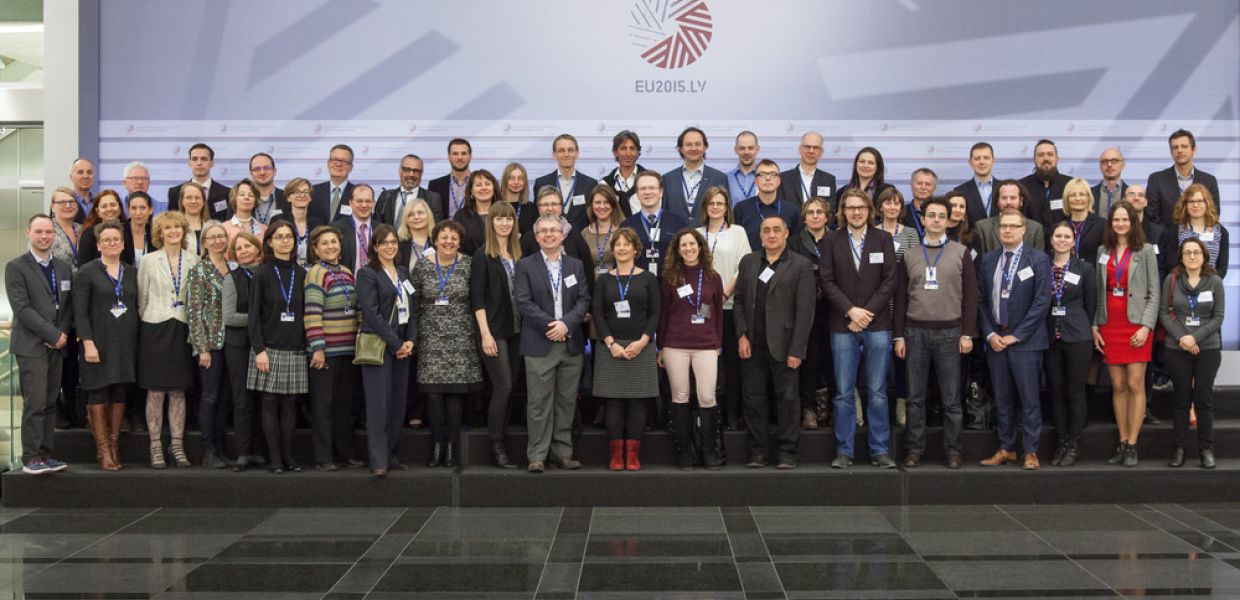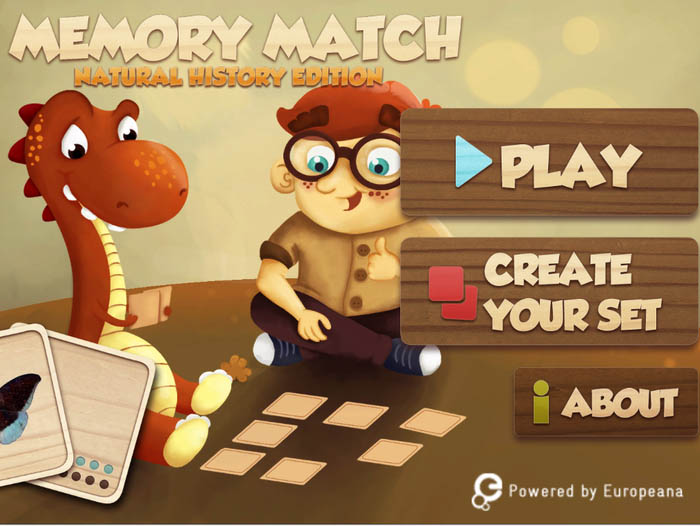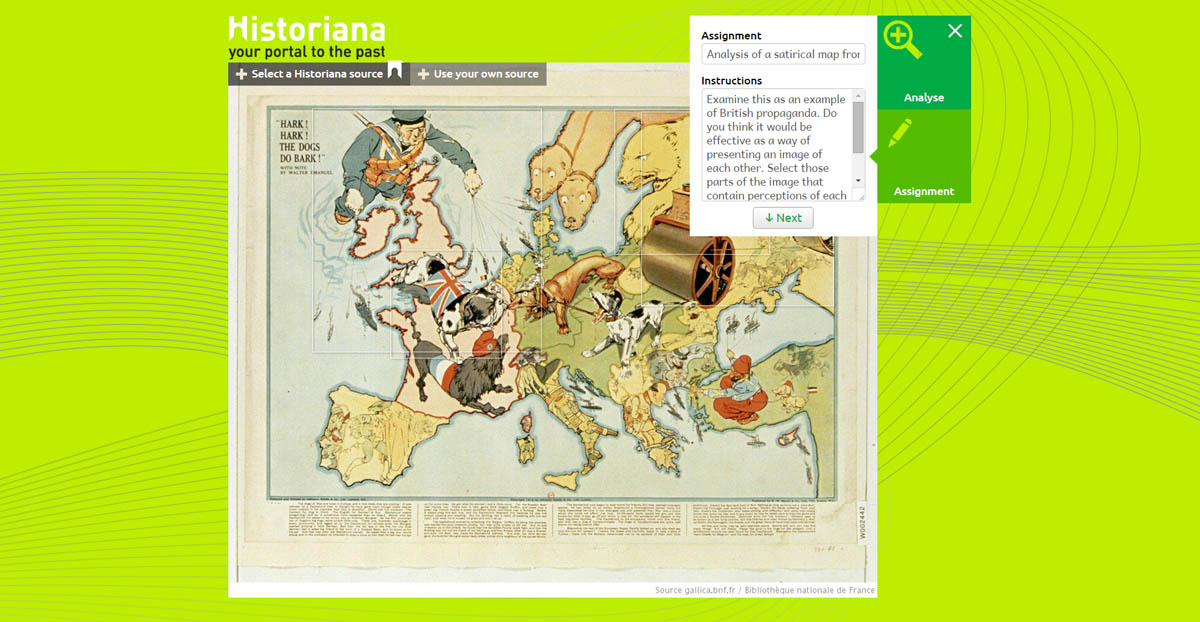Using culture in education and learning - new recommendations

We believe that digital cultural heritage - be it old newspapers, artistic masterpieces or archival film material - is a valuable resource in education and learning. And we’re committed to making sure that schools, students and other learners can find and use Europe’s heritage through Europeana. That’s why we’ve published the new Europeana for Education and Learning Policy Recommendations.
We want to ensure that digital European cultural heritage is widely used for high quality education and learning, in a way that is mutually beneficial to us, our partners and the public. That’s a vision we’ve developed over two years by working with policymakers, cultural heritage institutions, education experts and the Europeana Creative project.

Memory Game screencatch by Semantika. Image: Europeana Creative, CC BY-ND.

An example of a learning resource on historiana.eu Image: Europeana Creative, CC BY-SA.
The recommendations represent the views of more than 60 experts as well as policymakers from European Ministries of Culture and Education from 21 different countries. They were created under the Italian (2014) and Latvian (2015) EU Presidencies. The process was facilitated by the Europeana Foundation, European Schoolnet and EUROCLIO - European Association of History Educators.

The group of experts and policymakers involved in creating the recommendations, at a meeting in the National Library of Latvia, Riga. Image: Jevgenijs Sisojevs CC BY.
What do we recommend?
Read the Europeana for Education and Learning Policy Recommendations here.
The four main recommendations are:
-
Set up a Europe-wide structured dialogue between policymakers, cultural heritage institutions and educators to improve access and reduce duplication of effort
A structured dialogue should be developed between policymakers on both national and European levels, cultural heritage institutions, educational practitioners and civil society structures concerned with learning and education, regarding the availability and use of digital cultural heritage resources in education and learning.
-
Prioritise the provision of ‘Fit for Education and Learning’ content by cultural institutions and ministries
Europeana, cultural heritage institutions and educational communities should work together to make digital cultural heritage available based on educational needs.
-
Emphasise the development of inclusive and accessible digital learning resources
Cultural heritage institutions, communities of educators, developers of educational resources and Ministries of Education should work together to develop and/or stimulate the development of inclusive and accessible digital learning tools, resources and services that make use of digital cultural heritage and that help students acquire competences (such as creativity and critical thinking) which are more difficult to acquire with analogue alternatives.
-
Promote open licences and improve access and re-use conditions that underpin education and learning
Cultural heritage institutions, communities of educators, developers of educational resources, national authorities and the European Commission should support and promote the use of open licences and advocate for the strengthening of copyright exceptions to allow for educational use of digital cultural heritage.
What’s next?
We’ve sent the recommendations out to all stakeholders and relevant communities, encouraging them to implement them where they can. A brand new Europeana Task Force will continue to promote them and to stimulate follow-up.
Europeana will continue working with cultural heritage institutions to help them provide high quality content that is fit for education and learning in terms of subject, type, (meta)data quality and licence.
We will continue to improve the Europeana portal to showcase that content - making it easy to find, share and work with.
And we will make sure our voice is heard on a national and European level, by advocating more liberal copyright licences for educational use, demonstrating the value of opening up heritage for learning, and making the case for increased funding for digitisation of cultural heritage.
What can you do to help the learners of today and tomorrow be inspired by our fascinating past?
For more information on Europeana for Education and the Education Task Force, please contact Milena Popova (milena.popova@europeana.eu).
